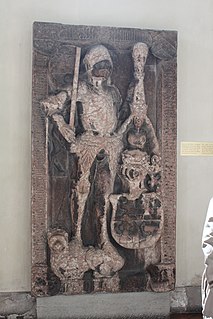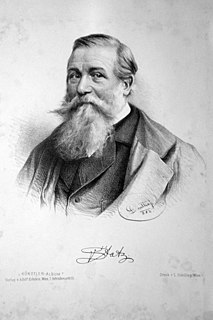This article needs additional citations for verification .(August 2020) (Learn how and when to remove this template message) |
Helmut Huchzermeyer (28 December 1904 – 1 March 1984) was a German philologist, musicologist and composer.
This article needs additional citations for verification .(August 2020) (Learn how and when to remove this template message) |
Helmut Huchzermeyer (28 December 1904 – 1 March 1984) was a German philologist, musicologist and composer.
Huchzermeyer was born in Klaswipper, today part of Wipperfürth in the Oberbergischer Kreis in the administrative district of Cologne, as the son of the Lutheran pastor Carl Huchzermeyer (1858-1929). He was educated at the Städtisches Gymnasium in Wipperfürth until his Abitur in 1924. Throughout his school years, he received solid training in organ, piano and violin playing as well as in theoretical subjects (including musical composition) from the seminar music teachers Georg Beringer and Alfons Schmetz at the teacher training college in Wipperfürth. Until 1929, he studied Latin, Greek and possibly religious education at the universities of Cologne, Marburg and Münster. At the same time, he studied musicology with Ernst Bücken (Cologne), Hermann Stephani (Marburg) and Fritz Volbach (Münster). The latter, coming from Wipperfürth, became his special mentor. In 1930, Huchzermeyer received his doctorate in Münster with a thesis on "Ancient Greek music Aulos and Kithara in Greek music until the end of the classical period" (printed 1931). This work is regarded as a standard work and is even today only outdated in a few points.
After working as a teacher and assessor at various grammar schools, the problem arose in 1933 that there was no need for grammar school teachers (especially classical philologists). Only by working exclusively as a music teacher, most recently at the girls' secondary school in Osnabrück, did Huchzermeyer obtain a budget position as a student councilor. From 1940 to 1946, he was a soldier or in English captivity. From 1948, he was a student councillor at the Stiftisches Humanistisches Gymnasium Mönchengladbach , a boys' school, where he devoted himself to the old languages. In 1951, he was appointed to the Oberstudienrat and entrusted with the management of the Studienseminar. He now no longer gave music lessons, but put together a respectable school orchestra, which had been lacking until then, which he led until 1960 and which performed regularly on festive occasions and with its own concerts. At the same time, he founded a wind band. In the early years in Mönchengladbach, he again became interested in music of ancient Greece. One result was the setting to music of Antigone by Sophocles for choir (in the original language), speaker and large orchestra. The occasion was the celebration of the 75th anniversary of the Stiftisches Gymnasium as a full institution in 1952. Huchzermeyer retired in 1967. His compositional output, his first attempts at composition were made at the age of ten, comprises over 61 works in various genres. Sacred compositions make up about one third of his complete works. Huchzermeyer had been married to Charlotte, née Rüther (1915-1993) since 1935. The couple had two children, one son is the internist and musicologist Hans Huchzermeyer.
Huchzermeyer died in Minden at the age of 79 and is buried in Klaswipper.
Helmut Rix was a German linguist and professor of the Sprachwissenschaftliches Seminar of Albert-Ludwigs-Universität, Freiburg, Germany.
Herbert Eimert was a German music theorist, musicologist, journalist, music critic, editor, radio producer, and composer.
Nicolaus A. Huber is a German composer.
Hans Günter Helms was a German experimental writer, composer, and social and economic analyst and critic.

Jürg Baur was a German composer.

Helmut Franz Maria Kirchmeyer is a German musicologist, philologist and historian.

Princely count William III of Henneberg-Schleusingen was a member of the House of Henneberg. He was the son of William II of Henneberg and Catherine of Hanau. William III inherited the princely county of Henneberg in 1440, when his father died in a hunting accident. In 1469, he married Margaret, the daughter of Duke Henry the Peaceful of Brunswick-Lüneburg.
Georg Busolt was a German historian of Classical history.

Markus Fischer is a German author of multiple books, as well as a contributor to various volumes He is professor at the Faculty of Foreign Languages and Literatures at the University of Bucharest.

Vincenz Statz was a Neo-Gothic German architect, mainly active in the Rhineland.
Klaus Hortschansky was a German musicologist.
Michael Custodis is a German musicologist, sociologist and university lecturer at the Westfälische Wilhelms-Universität in Münster.
Dieter Gutknecht is a German musicologist and former University music director.
Helmuth Osthoff was a German musicologist, university professor and composer.
Walther Hermann Vetter was a German musicologist. From 1946 to 1958, he was professor at the Humboldt University of Berlin.
Michael Heinemann is a German musicologist and university professor.
The nomos, also nome, is a genre of ancient Greek music, either solo instrumental or for voice accompanied by an instrument, characterized by a style of great complexity. It came to be associated with virtuoso performers. Although it designates a specific, nameable melody, it is unclear just how fixed it might have been in detail. Most likely, each performer was given some freedom to vary and interpret the melody, using musical phrases and gestures that would change from one performance to another.
Günther Massenkeil was a German musicologist, academic teacher, writer and concert singer (baritone). His main field of research was sacred music of the 16th to 20th century. He served as director of the musicology department at the University of Bonn from 1966 to 1991. He became known beyond academia for his editing and supplementing of the eight-volume encyclopaedia, Das Große Lexikon der Musik.
Karl Johannes Max Strub was a German violin virtuoso and eminent violin pedagogue. He gained a Europe-wide reputation during his 36 years of activity as primarius of the Strub Quartet. Stations as concertmaster led him from the 1920s to the operas of Stuttgart, Dresden and Berlin. Appointed Germany's youngest music professor at the Hochschule für Musik Franz Liszt, Weimar in 1926, he followed calls to the Berlin University of the Arts and, after the Second World War to the Hochschule für Musik Detmold. Strub was a connoisseur of the classical-romantic repertoire, but also devoted himself to modern music, among others he gave the world premiere of Hindemith's Violin Sonata No. 2 in D major. He promoted the music of Hans Pfitzner. Strub played on a Stradivari violin until 1945; numerous recordings from the 1930s/40s document his work.
Hans Huchzermeyer is a German doctor and musicologist.